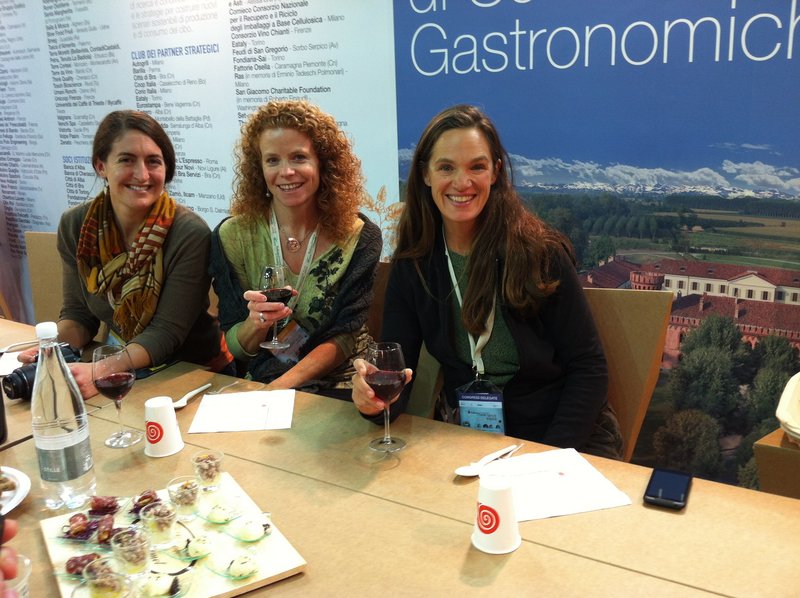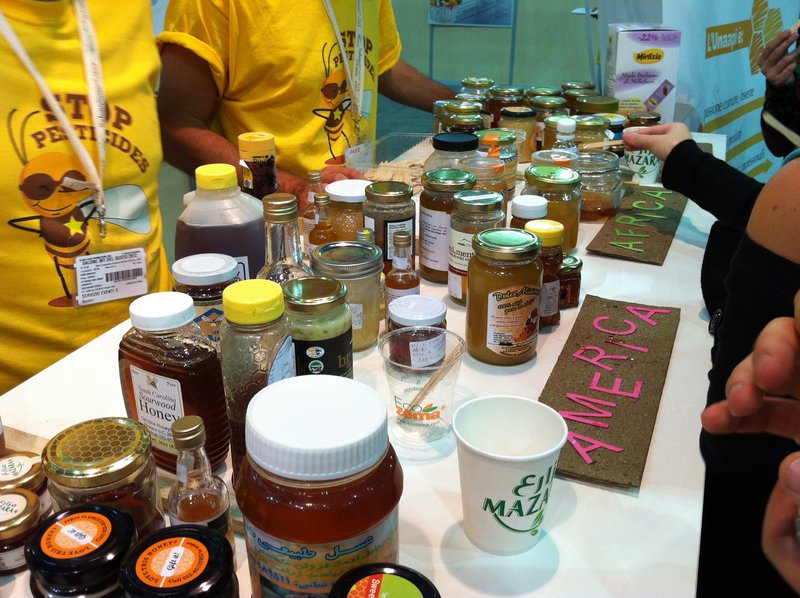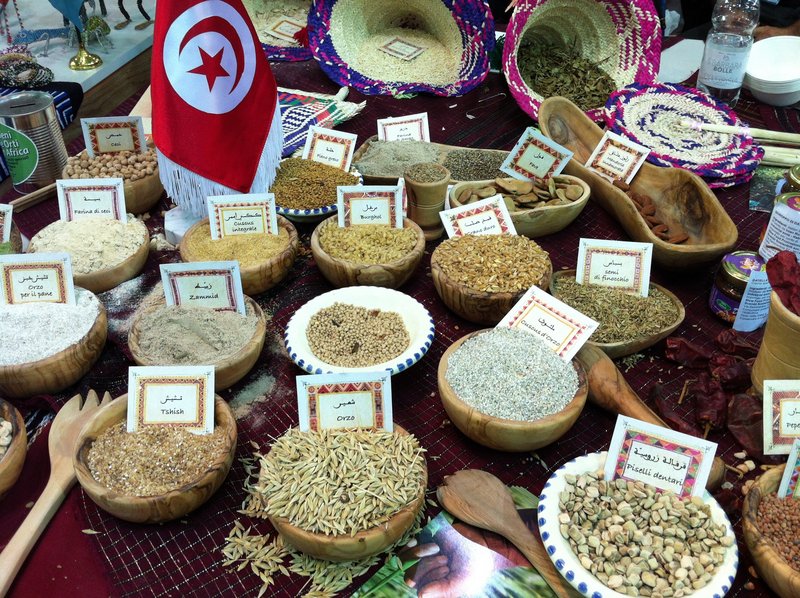Every two years, farmers, chefs, policy experts and food activists from around the world gather in Torino, Italy, for the annual Terra Madre conference hosted by Slow Food. The event, which promotes sustainable agriculture and the preservation of endangered foods, was held this year in October in conjunction with a food festival called Salone del Gusto. More than 200,000 people attended.
Slow Food Portland always sends a Maine delegation, and this year the local chapter was represented by a publisher and two farmers. I recently caught up with the trio to find out what ideas and inspiration they brought back with them.
Delegate Holli Cederholm farms at Proud Peasant Farm in Washington, Maine, with partner Brian St. Laurent. They grow more than 300 varieties of open-pollinated, organic vegetables and herbs, and sell them at farmers markets and through a CSA.
Cederholm said she was particularly interested in how the farmers and food producers she met from other countries convey the stories of the foods they grow to their customers.
“I was really taken by how they’ve used language to drive home the intimacy of place and tradition with their food products,” Cederholm said.
She hopes to take some of these ideas and use them on a farm blog, and possibly in a self-published cookbook that would incorporate “stories of the foods we grow, how we use them and why we think they’re important for the people of Maine.”
Since Cederholm also serves as general manager for the Organic Seed Growers and Trade Association (a national organization best known recently for its ongoing lawsuit against Monsanto), she also attended all the events having to do with seeds.
One highlight, Cederholm said, was a workshop hosted by well-known Indian food activist Vandana Shiva, who she called an “energizing speaker.”
“Seed is something that’s finally really coming into its own in terms of the attention it deserves,” Cederholm said. “You can’t have organic food crops if you start with seed that’s had its integrity compromised. People around the world are thinking really hard and working to protect their seeds.”
Fellow farmer and Maine delegate Sarah Bostick works for the New Americans Sustainable Agriculture Project at Cultivating Community, where she teaches Maine farming techniques to immigrant farmers from warmer climates. In addition, she runs a permaculture design business.
Bostick went to the conference looking for specific ideas that could help her in her work with immigrant farmers.
Her favorite idea came from a conversation with a delegate from Uganda. He told her how the extension service in that country created an audio farming manual to serve the often illiterate farming community in that country. Using a cell phone, farmers can call up information on a range of agricultural topics.
“I thought it was a brilliant way to get information out to people,” Bostick said. “Maybe we could rearrange it a bit to get it to work for us.”
Bostick was also excited to learn about the website www.growtheplanet.com, which allows users to design garden plots, determine what will grow well in a particular geographic location and calculate how many seeds they will need.
Sunrise Guide founder and publisher Heather Chandler was the third delegate sent to the conference by Slow Food Portland.
In addition to immersing herself in the abundance of food and wine available for sampling, Chandler was on the lookout for ideas to write about in the guide.
She said there was a lot of focus on food waste at Terra Madre.
“I met the environmental food policy director for the (European Union) in line,” Chandler said. “He thinks food waste is one of the biggest areas to impact climate change.”
When she was talking with delegates from California, Chandler learned about the gleaning efforts in that state to gather food from street trees and post-harvest leftovers from cultivated fields.
“It was interesting to see there was an organized effort on the West Coast,” Chandler said. “They have groups that organize volunteers and do these gleaning projects, and then the food is donated to food pantries and food programs.”
After talking with chefs from around the country who are engaged in teaching people about cooking and food preparation, Chandler was struck by the limited scope of cooking education for the general public in food-obsessed Portland.
“I think there’s real opportunity for us to do more in the food preparation area in Greater Portland,” Chandler said.
While all three delegates enjoyed connecting with the international food community and gathering new ideas, they all came home with a newfound appreciation for the sophistication of Maine’s food scene.
“I think Maine is doing incredible things,” said Bostick. “We have the capacity to feed ourselves in such a big way. Maine still has the farming infrastructure (that other places have lost).”
Cederholm noted that America has a relatively short food tradition compared with other countries, and that “most of our food history has been dominated by industrial food.” Still, her time in Italy caused her to realize that Maine continues to maintain a unique food identity in a sea of homogenized, mass-marketed food.
“Maine is already really fortunate in that we’ve been thinking about food for a really long time,” Cederholm said. “I kind of felt really blessed coming from Maine.”
Chandler said her conversations with fellow U.S. delegates gave her new insight into how what’s happening in Maine compares with food initiatives around the country. “When I was there, there was this sense that Maine was doing a lot nationally,” Chandler said. “There was this perception among other (U.S.) delegates that Maine has a lot going on.”
Staff Writer Avery Yale Kamila can be contacted at 791-6297 or at:
akamila@pressherald.com
Twitter: AveryYaleKamila
Send questions/comments to the editors.




